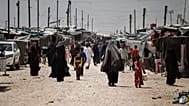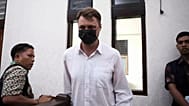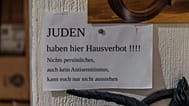By Daria Sito-Sucic
SARAJEVO (Reuters) - A Muslim party said it would launch a legal bid to change the name of Bosnia's Serb region, enraging all Serbian parties in the volatile country and prompting calls for calm from the European Union.
The largest Bosnian Muslim party, SDA, said on Wednesday the name Republika Srpska (Serb Republic) discriminated against Bosniaks and Croats there, and it would challenge it in the constitutional court.
Under the 1995 Dayton peace accords that ended Bosnia's 1992-95 war, the country is split into two highly autonomous regions, the Serb-dominated Serb Republic and the Federation dominated by Muslim Bosniaks and Croats, linked via a weak central government.
SDA leader Bakir Izetbegovic said the legal challenge was a response to "intensified attacks on Bosnia and its integrity" by Bosnian Serb nationalist leader Milorad Dodik.
Dodik, who heads the Serb SNSD party, said the initiative was anti-constitutional and that Serbs will halt their work in the central government.
"If the appeal is accepted, we will call a special session of the Republika Srpska National Assembly at which we will decide about the future status of the RS (Serb Republic)," Dodik said after meeting other Serb politicians. He currently chairs Bosnia's inter-ethnic three-man presidency as its Serb member.
The EU delegation in Bosnia issued a statement saying: "We call on all political parties to refrain from political manoeuvres aimed at distracting attention from the real issues facing Bosnia.
"Polarising statements and actions ... will not facilitate the formation of new authorities at a crucial moment for the country's EU path," the delegation added.
Bosnia is hoping to become an EU candidate later this year.
Bosnia's international peace overseer Valentin Inzko said the name challenge "in the midst of discussions on government formation is irresponsible and counterproductive, and further undermines the trust between constituent peoples and their political representatives".
Following parliamentary and presidential elections in October, a dispute between Serb, Croat and Bosniak presidency members over Bosnia's integration into NATO has delayed the formation of the central government.
The Bosniak and Croat pro-NATO presidency members refuse to approve Dodik's candidate for the job of prime minister unless he pledges support for NATO integration. But pro-Russian Dodik is strongly against it.
(Reporting by Daria Sito-Sucic; Editing by Andrew Heavens)















